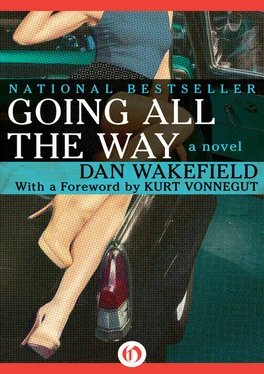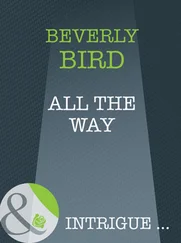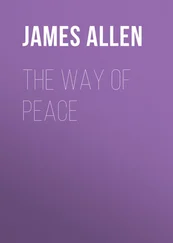It was Gunner Casselman.
After recognizing him, the young soldier buried his head back in the magazine, knowing a famous guy like that would never remember him, even though they were in the same class at Shortley, and certainly wouldn’t have anything to say to him. Casselman sat down in the seat next to him and made a pop of his fingers that brought the sluggish waiter to him like a shot.
“Bring me a Bud, please.”
“Yassuh, right away.”
It was as if the waiter knew, or sensed, who he was, or that he was Somebody. From the corner of his eye the pudgy young soldier could see Casselman was staring at him, almost squinting, his hand raised before him as if it would help him grab hold of the memory he sought. Then the forefinger shot out straight from Casselman’s hand, the thumb cocked back, the way kids make like they’re pointing a pistol at you, and Casselman said, “Indianapolis. Shortley!”
The young soldier looked up, feeling his ears go hot, and said, “I went there.”
That seemed to accurately describe the unsensational nature of his own time at Shortley, as compared to the glorious record of the Gunner.
Casselman thrust his big hand forward and said, “I’m Tom Casselman,” and added, “Class of Forty-eight.”
For anyone who went to Shortley, it was sort of like having the President come up to you on the street and say, “I’m Dwight Eisenhower,” adding, as if you might not know him, “President of the United States.” Then you were supposed to shake hands and say, “I’m John Q. Public.”
The young man shook the outstretched hand and said, “I’m Willard Burns.”
The waiter brought the beer, taking the small coin Gunner left him with effusive thanks, and Gunner stared again at Burns, like he had X-ray vision, and made that pop of his fingers.
“You’re Sonny Burns.”
“That’s what they called me.”
And, he thought ruefully, it was evidently what they still called him; was what they would continue to call him, the little boy-cherub nickname he would be stuck with into old age, a bearded old coot called “Sonny.”
“Sure,” said Casselman. “Sure, I remember. You were a photographer. Took pictures for the Daily Echo .”
“I did some sports stuff you might have seen,” Sonny said.
“Right! Action stuff! Damn good!”
Sonny ran a finger between his neck and the collar of his shirt, looking away as he said, “I got some good shots of you in the Southport game, senior year.”
“Right! Hey, this is great. Running into you like this.”
Sonny couldn’t figure out what Casselman could think was so great about it. Unless there was going to be some reelection of high-school class officers and Gunner was looking for votes, Sonny couldn’t imagine what use or interest he could have for the guy.
“Been doing some photography myself,” said Gunner.
He pulled out a pack of Chesterfields, gave it a sharp tap, and one of them popped out toward Sonny, just the way it happened when someone offered a cigarette in the movies. Whenever Sonny tried it, either none came out or they spilled all over the floor.
“Yeh,” Gunner explained, snapping a lighter in front of Sonny, “I just got back from Japan. Stopped off in St. Louis to see an old buddy at Fort Leonard Wood. Anyway, over in Japan, I picked me up a Nikon. I’m not worth a damn yet—mostly shot a lot of tourist-postcard-type stuff, Fuji and the temples and gardens and all that—but I really want to learn.”
“That’s swell,” said Sonny.
He noticed that Gunner had several campaign ribbons, including the Korean theater, and a Purple Heart. The only ribbon Sonny had was the one you got for the Good Conduct Medal. He had the sinking feeling that maybe indeed all of life would turn out to be like high school; the Gunners continuing to be heroes, him going quietly on collecting the boring Good Conduct Medals of life.
“You must have been in combat,” he said, nodding at the ribbons.
Gunner shrugged. “Caught a little shrapnel in the ass, that’s all.”
If you really were a hero you never made a big deal of it. You made it sound routine and unglamorous, like shrugging off a ninety-yard touchdown run as “good luck and good blocking,” and in so dismissing such feats they came out sounding even more marvelous.
“I got stuck in Kansas City, Public Information,” Sonny said, feeling he had to apologize.
Gunner shrugged, like it could happen to anybody. “Only one thing you missed,” he said, “but that is one thing no man should miss.”
“What?”
“Ja- pan .”
With just the two syllables, he made it sound fabulous.
“It changed my whole approach,” he said.
“To what?”
“You name it. I never really thought about anything before. College, you know, I memorized stuff. But I mean, think, question. There’s a beauty there we haven’t got—in art, architecture, in food, in philosophy, even religion. Zen. Jesus, it’s not that I really know about Zen, but I sort of got like a feel for what they’re into, ya know, and it’s got the Western religions beat by a country mile.”
“Yeh, it sounds pretty great,” Sonny said, “from what I know about it.”
What he knew about it was mostly contained in a story by J. D. Salinger where one of the brothers believed in Zen. He knew it was a branch of Buddhism and that it had masters instead of ministers and priests. Sometimes the masters hit you over the head with a bamboo stick, to give you enlightenment.
“Say, you ever drink any sake?” Gunner asked.
“I don’t think so, no.”
Gunner looked quickly around the club car.
“Don’t order another beer,” he said quietly. “I’ll be back.”
He came back with a duffel bag that contained a lot of Japanese stuff. Books on Zen. Some No plays. Pictures of formal gardens. A Nikon camera. And a bottle of sake.
“You really should drink it warmed up,” he said, “but even so.”
He had stopped at the water cooler and shucked off a couple of Dixie cups. Surreptitiously, as if he were fiddling for something in the duffel bag, he poured him and Sonny a cup of the sake.
“Here’s to a great culture,” he said.
Sonny took a big swallow and it burned going down, making him wince. It tasted sort of like perfume.
“Terrific,” he said.
“Can’t beat it,” said Gunner. “Wait’ll you have it warm, like it should be.”
“How long were you there, in Japan?”
“Three months. Beautiful. Someday I have to go back. But first I have to find out what I’m doing here. Or going to do.”
“Job-wise?”
“Everything-wise. That too, though. I worked at this ad agency up in Chi a couple summers during college. Young bunch of guys, pretty sharp. They said if I came with ’em when I got back, I could write my own ticket.”
That sounded just like what Sonny would have expected for Gunner. But the odd thing was, because of whatever happened to him in Japan, Gunner no longer knew if he wanted to go where that kind of ticket would take him. Maybe he had been hit over the head by one of those Zen guys.
“I’m thinking about the GI Bill,” Gunner said. “Maybe go back and really study something, instead of horsing around.”
“Yeh, it might be nice.”
“You going into photography?”
“I dunno, exactly,” Sonny said. “I want to sort of get my bearings.”
“Yeh, right. No use going off half-cocked. Hey—have some more sake.”
“Thanks.”
Sonny was getting used to the stuff. It wasn’t too bad, after you got going on it.
“Japan,” Gunner said. “What an experience. You get outside your own society, it gets you to thinking. You know, you see there’s other ways to do things, other ways to look at things.”
Читать дальше












